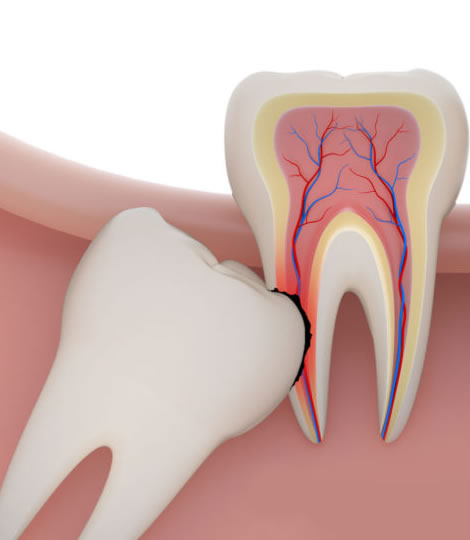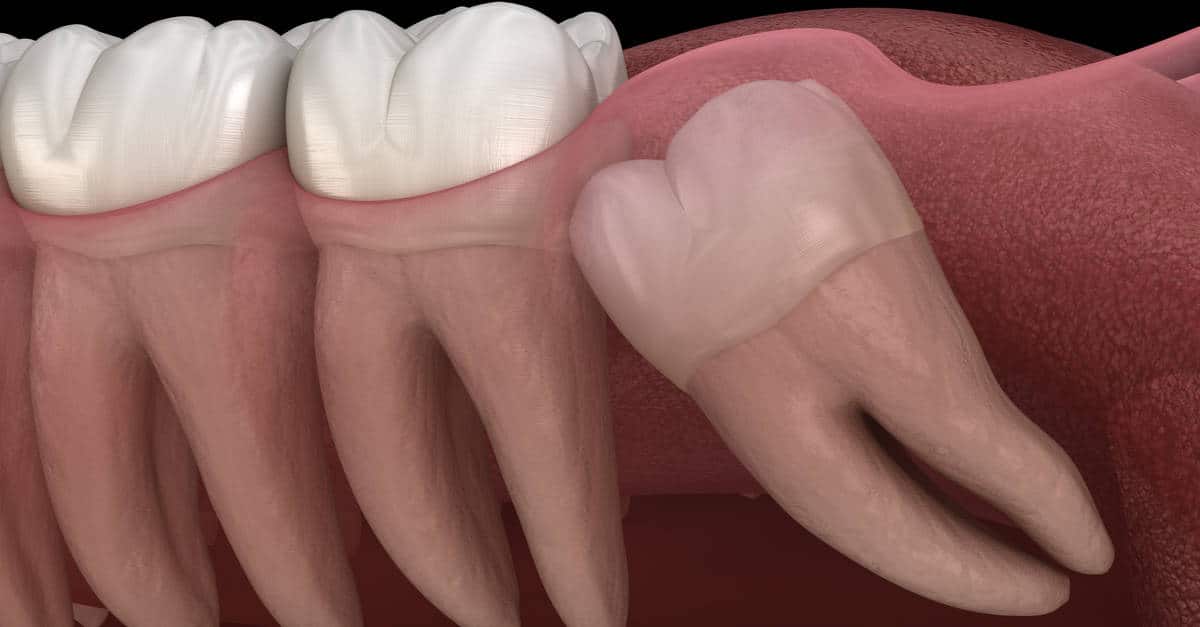Exploring Different Sedation Options for a Comfortable Knowledge Teeth Extraction Experience
When confronted with the possibility of having wisdom teeth drawn out, making sure a pain-free and comfortable experience is critical. Making use of sedation during such treatments has come to be progressively typical to alleviate stress and anxiety and discomfort. With a series of sedation options available, from local anesthetic to basic anesthetic, each technique provides differing levels of relaxation and discomfort control. Recognizing the distinctions in between these alternatives and their suitability for specific demands is critical in making certain a comfy and smooth knowledge teeth extraction procedure. wisdom teeth removal aspendale.
Regional Anesthesia
Local anesthetic is a typically utilized method for numbing certain areas of the mouth throughout knowledge teeth removal procedures. By carrying out a regional anesthetic, such as lidocaine, a dental practitioner can make certain that the individual continues to be comfy and pain-free throughout the removal process. Neighborhood anesthetic works by temporarily blocking the nerves in the mouth, preventing them from sending discomfort signals to the brain. This enables the dental expert to execute the extraction without creating any type of discomfort to the patient.
Among the key benefits of neighborhood anesthetic is its targeted numbing effect, which suggests that just the particular area being treated is impacted. This localized approach minimizes the danger of systemic negative effects and permits a quicker healing post-procedure. Furthermore, regional anesthesia is thought about to be a regular and secure method in dentistry, with marginal dangers included when carried out by an experienced specialist.
Nitrous Oxide
Nitrous oxide, commonly recognized as laughing gas, is a kind of sedation frequently made use of in dentistry to help people kick back during dental procedures. This sedation option allows the client to remain conscious and receptive throughout the treatment while really feeling at convenience and comfy.
Once the mask is eliminated, the effects of the gas wear off promptly, allowing individuals to resume their typical activities without lingering sedative effects. Nitrous oxide is appropriate for patients of all ages, making it a versatile sedation option for wisdom teeth extractions and other oral procedures.
Dental Sedation
Oral sedation, a medicinal approach employed in dentistry, includes the administration of sedative medicines by mouth to cause a relaxed state during dental procedures. The drugs prescribed for dental sedation belong to a course of medications called benzodiazepines, which have sedative, anxiolytic, and amnesic properties.
Unlike intravenous sedation, oral sedation does not require needles or shots, making it a much more comfy alternative for people with a fear of needles. Additionally, oral sedation is taken into consideration risk-free and effective when carried out by trained oral experts.
IV Sedation
Administered intravenously by qualified doctor, IV sedation is a powerful technique utilized to cause a controlled state of deep leisure and unfamiliarity throughout dental procedures. Unlike dental sedation, which can be uncertain in its impacts, IV sedation permits specific control over the level of sedation, making it a perfect choice for complex procedures like wisdom teeth extractions.
During IV sedation, a sedative drug is delivered straight right into the bloodstream via a capillary, enabling it to take result swiftly and effectively. This approach ensures that the person stays not aware and comfy of the procedure while still preserving vital functions such as breathing and heart price.
One read the full info here of the main advantages of IV sedation is its ability to provide a deeper degree of sedation compared to other techniques, making it specifically appropriate for individuals with high levels of anxiety or those undergoing extensive oral work (wisdom teeth removal aspendale). Furthermore, the effects of IV sedation usually subside gradually after the procedure, reducing the possibility of grogginess or remaining negative effects. On the whole, IV sedation uses a efficient and risk-free option for guaranteeing a comfy and worry-free experience during wisdom teeth extraction

General Anesthetic
Having discussed the advantages of IV sedation for wisdom teeth removal, the use of general anesthesia supplies an alternative option for clients calling for a much deeper degree of unconsciousness during dental treatments. General anesthetic causes a regulated state of unconsciousness, ensuring the person really feels no discomfort or pain during the extraction process. This approach is particularly useful for people with severe oral anxiousness, complicated surgical demands, or those undertaking numerous removals concurrently.
General anesthetic is administered by an experienced anesthesiologist who very closely keeps track of the client's vital signs throughout the procedure. It entails the use of intravenous medications or breathed in gases to induce a state of unfamiliarity. While under general anesthetic, the individual will not know the surgical procedure, experience any type of pain, or have any kind of recollection of the treatment later.
Although general anesthesia is safe when carried out by certified experts, it brings a slightly higher risk compared click for more info to various other sedation choices - wisdom teeth removal aspendale. Clients taking into consideration basic anesthetic for knowledge teeth extraction need to go over the prospective risks and benefits with their dentist or dental cosmetic surgeon to make a notified decision based on their individual needs and clinical history

Conclusion
In final thought, numerous sedation options are available to ensure a comfortable wisdom teeth extraction experience. Dental sedation and IV sedation deal much deeper degrees of leisure, depending on the patient's requirements.
Nitrous oxide is suitable for clients of all see here ages, making it a versatile sedation alternative for knowledge teeth removals and other dental procedures.
